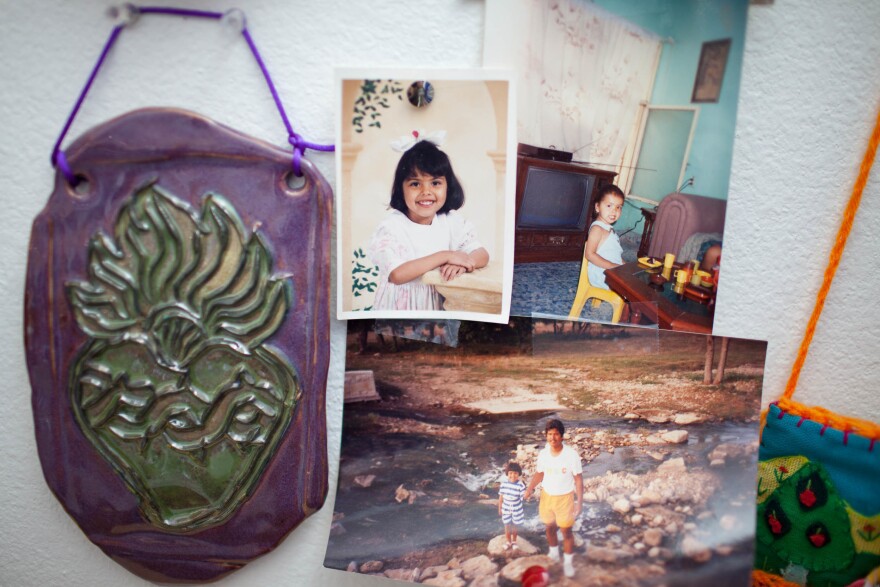Of the 690,000 undocumented immigrants now facing an uncertain future as Congress and President Trump wrangle over the DACA program are about 8,800 school teachers.
The real possibility that they'll be deported if the Deferred Action for Childhood Arrivals program is allowed to expire has put enormous stress on them.
Maria Rocha, a teacher in San Antonio, Texas, says it's gut wrenching, but she's trying not to show it in front of her third-graders. Rocha has been teaching at KIPP Esperanza Dual-Language Academy for three years.
It's even harder, she says, because some of her students are also at risk of being deported.

"It's a very touchy subject with 8-9 year olds," says Rocha. "But they're aware of this because they have family members who are undocumented themselves, so their families talk about it."
Rocha says a first-grade teacher and colleague at the school self-deported late last year after her DACA permit expired. Everybody at the school took it really hard, says Rocha, but there was nothing anybody could've done.
School districts in Texas and across the country have hired teachers covered by DACA on the condition that they renew their work permit every two years, as the program requires. But last September, after President Trump announced he was shutting down DACA, these teachers suddenly found the safety and security the program had offered up in the air.
"I'm trying to remain positive and try to compose myself every day with my students, Rocha says, "because I talk to them about their future and yet I don't know my own."
Rocha was a toddler when she and her grandmother left Coahuila, Mexico, and entered the U.S. illegally. In June 2012, right around the time Rocha turned 25, DACA went into effect. Rocha qualified and immediately her life changed.

"I was living in the shadows because of fear," she says. "I didn't want my family targeted because they're also undocumented. But with DACA I was no longer afraid."
Before then, Rocha had been working as a housekeeper while holding down two other jobs to pay for her college education.
When she graduated with a teaching degree from the University of Texas-San Antonio, it was the fulfillment of a childhood dream — to be a teacher.
"I just purchased my first car in December," says Rocha. "We've done things the right way. We were told to go to school, make a career. But now we're at the mercy of the stroke of a pen."
Simon Sandoval-Moshenberg of the Legal Aid and Justice Center, an advocacy group in Virginia, says that if lawmakers don't restore DACA, Rocha and people like her will be forced to recede back into the shadows.

"We're talking about huge numbers of people with work permits, who've built a solid working class or middle class existence," he says, "who will immediately be punched into poverty."
Some legal experts say the courts could still intervene. Teachers unions and the National School Boards Association for example are backing a lawsuit filed last month in New York that could prevent school districts from firing teachers whose DACA permits expire.
Maria Rocha says she survived before DACA and she'll survive after DACA.

"Mama dice que es ser bendecida," Rocha says in Spanish: My mom says I'm blessed, because of DACA.
Now, the question is, will lawmakers in Washington see it that way?
Copyright 2023 NPR. To see more, visit https://www.npr.org.


